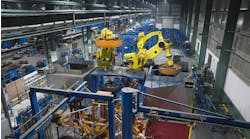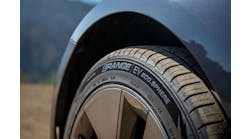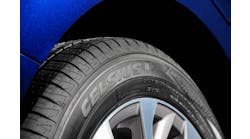In an effort to assure its 10,000 global employees, Cooper Tire & Rubber Co. answered some frequently asked questions as its potential acquisition by Goodyear Tire & Rubber Co. looms in the future. The FAQ, filed with the Securities and Exchange Commission, provides insights and answers for both companies’ tire dealers, too.
Why did Cooper agree to a deal?
The company noted “we all feel good about the progress Cooper has made and continues to make to transform our business.”
But just like any publicly held company, Cooper “is owned by the shareholders. It is our first priority and duty to shareholders to create value. We absolutely were not looking to sell Cooper, but we were presented with a compelling offer from Goodyear, which we felt was in the best interests of the company and its shareholders. Our duty was to follow through on this offer, which met several conditions such as the level of return to shareholders, certainty of the deal closing, and positioning the company in the best way possible for the future.”
Could Cooper have bought someone else to increase its scale in the market?
“It is not easy to find (even if you are looking) combinations that offer the advantages of the proposed Goodyear-Cooper transaction. Scale is important for long-term success in our industry and this helps Cooper achieve scale. Again, we were not looking for a transaction. One came to us.”
What happens to Cooper's tire brands?
“We cannot make commitments for Goodyear on what brands will be retained following the closing of the transaction, but we can say that Goodyear has clearly acknowledged the power and value of our brands and the desire to blend the offerings of both companies to meet a wider range of customer needs.”
How many jobs does the $165 million in synergies savings represent?
Cooper says that figure, which would come over two years, “would come from a number of areas,” and not just headcount reductions. “While we understand that employees are seeking to understand how many positions may be eliminated as the companies combine, we are not able to predict this.”
What happens with efforts to attract orders from original equipment manufacturers and new relationships with retailers like Walmart?
“Until the agreement closes, our two companies will operate separately and compete as we always have. Therefore, we will continue to pursue business as we planned prior to the agreement and we will seek to expand our business as we planned. We cannot discuss or predict what individual customers will do or not do, but we can tell you that we will be actively competing as we always have until the transaction closes. At that point, we will know more.”
What happens to our joint ventures in tire manufacturing?
“Nothing changes. These joint ventures remain part of Cooper just as they are prior to the transaction. They will continue to be part of the Goodyear-Cooper organization after the closing.”
What does the merger mean for Cooper employees?
There are some assurances. One pertains to unionized employees. Goodyear will comply with the terms and conditions of each union agreement.
But there are plenty of areas that Goodyear could decide to amend once the companies are combined — everything from the terms to 401K contributions to retiree medical benefits.
In the big picture, there are still lots of unknowns. It’s wrapped up in the response to this question: What does it mean that Cooper will become a wholly-owned subsidiary of Goodyear?
“This means that when the transaction closes, Cooper will no longer be a publicly held organization that is traded on the NYSE. Cooper will be owned by Goodyear. Until the integration process takes place after closing, we do not know how the operation of Cooper will be handled by Goodyear.”
Cooper says it doesn’t intend to eliminate positions before the closing of the merger, which is expected to occur in the second half of 2021 (but could be extended to as late as May 2022). Once the deal closes, the decisions ultimately fall to Goodyear. “We expect there will be overlap and elimination of some positions, but there will also be opportunities for Cooper employees in the combined company. It’s too early to know now exactly what that means, but more will be known over time as integration planning takes place and then after the close.”
U.S. employees and ex-pats whose home country is the U.S. will be entitled to a severance package if their employment is terminated. That package would include a cash payment, continuation of medical insurance coverage, a prorated annual incentive plan bonus, unused vacation payout and job placement assistance.
What happens if Cooper pulls out of the deal?
The contract does specify a termination fee: Cooper would pay Goodyear $83.4 million — or $83,401,678 to be exact.
There are specific things that would trigger that fee, but most notably if Cooper entered into an agreement “for an unsolicited alternative transaction.” The same termination fee would apply if Cooper’s board didn’t approve or reaffirm the agreement.



